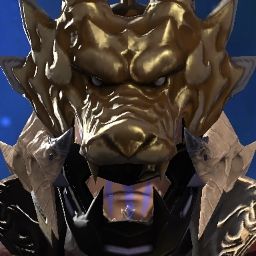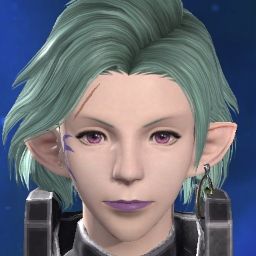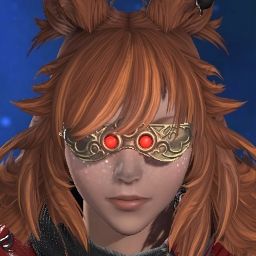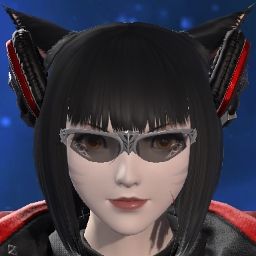-
05-11-2022 03:12 PM #61Player

- Join Date
- Aug 2020
- Location
- Limsa Lominsa
- Posts
- 351
- Character
- Sidurgu Dazkar
- World
- Behemoth
- Main Class
- Goldsmith Lv 90
(2)
-
05-11-2022 04:41 PM #62Player

- Join Date
- Feb 2019
- Location
- Ul’dah
- Posts
- 822
- Character
- Eara Grace
- World
- Faerie
- Main Class
- Paladin Lv 100
I still think that would fit with Emet, in the optional dialogue he seems to speak of Zodiark similarly.
My point more generally though is that the narrator should not be taken at her word, as she’s describing Emets view and tale. Even if she were to be out of synch with him in certain moments I don’t think I’d buy her statements as fact, even if they swung in the other direction. The fact she calls them “wretched creatures” I think seals the deal for me.Emet-Selch: And like one of your primals, He tempered us. It was only natural. There is no resisting such power. And so we Ascians came to exist solely to bring about the rule of darkness. His darkness. Of course, some would call us "evil" for it... and they would be fools. Though that is only to be expected, given their innate ability to conceive of the nature of our universe.
Because nothing is changing about the scene, the only difference is the souls. The poses and positions are the exact same. And once again Emet is very clear that he still views them as malformed “half men” even after millennia pass. If his feeling that they were abominations was purely because of the initial effects that were visible after the Sundering, then those wouldn’t be valid to use on us or Varis right?
Around 15:45 in this video
https://youtu.be/fGm29ROnFlk
I’m referring to the lost little troll sidequest, where we communicate with a small troll who only Grrrs. The echo allows us to understand him perfectly.
Ardbert and co. seemed just as smart as us, same with all the people we met on the First.(5)
-
05-11-2022 05:08 PM #63Player

- Join Date
- Feb 2021
- Posts
- 3,472
- Character
- Kizuya Katogami
- World
- Cerberus
- Main Class
- Conjurer Lv 81
I have to say i find it a bit ironic that people talk about Emet lying or having a biased view meanwhile these same people are the ones who 100% trust venat/hydaelyn despite her lying and manipulating us far more and take her pity walk scene at face value without questioning it’s authenticity. Double standards i suppose…
(10)
-
05-11-2022 05:38 PM #64Player

- Join Date
- Sep 2021
- Location
- Solution Eight (it's not as good)
- Posts
- 3,041
- Character
- Ein Dose
- World
- Mateus
- Main Class
- Alchemist Lv 100
Yeah, thinking about it, this is where I'm landing. Like, I wouldn't say I do a lot of incoherent screaming as a person, but 'incoherent, meaningless mumbling/screaming' is definitely something I do, especially when I'm in pain or stress. Even magical language-understanding wouldn't be able to get actual meaning out of it, because there's no intent of a message, it's just an outburst. And yeah, I don't know what being sundered would feel like, but I feel like I'd probably be in that state for a little while.
We know that's how Emet would hear that sort of thing, because we've got the same power and have heard similar.
EDIT: And yeah, even if 'power and physicality' is reduced with sundering, intelligence very clearly isn't. If intelligence wasn't being sundered, then we wouldn't have seen sundered people outsmart all three unsundered. Pretty easily in all three cases, too. And I wouldn't exactly call Thordan the greatest mind of his generation.(7)Last edited by Cleretic; 05-11-2022 at 05:41 PM.
-
05-11-2022 05:40 PM #65
I don't see that as being similar at all, in that dialog he's merely stating Zodiark's elemental alignment. A far cry from something like calling Hydaelyn "the Light of the future".
Why? They are wretched. They've literally been devolved into shambling animals.My point more generally though is that the narrator should not be taken at her word, as she’s describing Emets view and tale. Even if she were to be out of synch with him in certain moments I don’t think I’d buy her statements as fact, even if they swung in the other direction. The fact she calls them “wretched creatures” I think seals the deal for me.
"Same scene slightly changed" is a very commonplace cinematic technique. The point is juxtaposition of elements in a timelapse, which is particularly evocative when you have a central figure that remains the same. This is literally a slideshow, they're doing their best here. The point is that even as mankind began to improve, Emet retained his impression of them as misbegotten creatures.Because nothing is changing about the scene, the only difference is the souls. The poses and positions are the exact same. And once again Emet is very clear that he still views them as malformed “half men” even after millennia pass. If his feeling that they were abominations was purely because of the initial effects that were visible after the Sundering, then those wouldn’t be valid to use on us or Varis right?
That is what Zodiark, Hydaelyn's actual target, ended up as. Could be the whole "torn apart" aesthetic is what happened to everyone's souls at first, but over time they healed and coalesced into more stable forms. This sort of thing would explain the similarity between shards as we have seen them now, in fact.Around 15:45 in this video
You mean the troll that is as intelligent as any human, way more than other trolls, to the point that it can not only understand human speech but can also read? I'm pretty sure this is a case of the exception proving the rule.I’m referring to the lost little troll sidequest, where we communicate with a small troll who only Grrrs. The echo allows us to understand him perfectly.
We don't really know what proportion of aetherial density each shard ended up with, or how the souls of the people on each shard may have changed over time.Ardbert and co. seemed just as smart as us, same with all the people we met on the First.(9)
-
05-11-2022 06:25 PM #66Player

- Join Date
- Nov 2017
- Posts
- 14,163
- Character
- Aurelie Moonsong
- World
- Bismarck
- Main Class
- Red Mage Lv 100
If you're going to get "sciency" about it, then you can't simultaneously have Ryne splitting into two visually identical entities (logically must be halved in density to remain the same size) and be concerned that the ancients would not be able to support their bodies with 1/14 of their strength. If strength is reduced and weight reduced to match, then – setting aside the properly sciency technicalities of how such things interact at different proportions – there is no issue. Their altered strength matches their altered bodies and all is even.
Or to look at it another way, if they all collapsed under their own weight and died immediately, the modern races cannot be descended from them.
Of course, you literally cannot halve "everything" about a person, numbers-wise. Halving the height of something while keeping the same proportions brings it down to an eighth of its volume. So there's a degree of ambiguity in exactly what would be reduced and by how much.
I have wondered in the past, but haven't fully investigated, if the relative size of human and ancient might work out to them being 14 times the volume – that would add up if the ancients are a little under 2.5 x the height of a human, which from memory sounds about right.
Actually, there's at least one example of Emet using "dark" in the same positive connotation that we would normally use light/bright – specifically from the Dying Gasp: "dream now of a dark tomorrow" to mean a hopeful one for the ancients.
I had a lot of trust for Hydaelyn and how Hydaelyn was presented to us, because I thought to invert it at such a late stage would be poor storytelling.
Even at late post-Shadowbringers, she seemed to be a primal designed to act as a mother-goddess, and it was conceivable that the narrative was designed to maintain her as ultimately "good" and the Sundering some kind of accident, A.I. logic failure or urgently needed as the lesser of two evils.
Quite frankly, the writers failed to take any of these paths, diminished Hydaelyn from being something "bigger than us" to just a single person putting on an act, and gave her a motive that... well, aligns with what the game presents as thematically good, but rings hollow to me.
I'm not questioning this narrative of Emet's because I support Venat; I'm questioning it because it contradicts what Emet himself told us in the game.(10)
-
05-11-2022 06:41 PM #67
Who knows the exact ratio of how aetherial density translates to physical density. Frankly I think it's obvious that the writers didn't really think this one through, and to coherently rationalize everything would either require a very convoluted explanation or some very diligent handwaving. But the fact is, we are told outright that their intelligence and physicality was reduced in proportion to how sundered people were, and what we see from this narrative supports this notion. This at least is one detail they're relatively consistent on, probably because Ishikawa herself wrote it.
(7)
-
05-11-2022 06:50 PM #68Player

- Join Date
- Feb 2019
- Location
- Ul’dah
- Posts
- 822
- Character
- Eara Grace
- World
- Faerie
- Main Class
- Paladin Lv 100
Ok so if we’re going with her being objective then you’d agree that Hydaelyn is the light of the future then?
They’re human and even when they were incapable of speech they remained so. Through the calamity of wind, lightning, fire, earth, ice, water and darkness they remained so. Being “unable to from words” due to losing language, culture and knowledge doesn’t mean they lack the intelligence to do so and it certainly doesn’t make them “shambling animals.”
Which should say everything about why taking him at face value is foolhardy. The man himself wouldn’t defend those statements at this stage, however deeply he still thinks his beliefs “inviolable.”
My point is this is a tale from Emets pov, and the fact that there are discrepancies should provoke questions. I would’ve thought this would be something we can all agree on, given how discrepancies are used to dismiss the cutscene at the end of Elpis.
Yes I do mean that troll. That troll proves as long as a being is capable of intelligent thought it can be understood with the echo, even if what physically comes out is gibberish. Much like the Sundered described in the event. I have no reason to think that if Emet sat down with the Sundered and tried to teach them their letters he wouldn’t be just as a successful as he would be teaching the troll.
There’s nothing to suggest the shards had an imbalance of aetheric density. The only one with more would be the Source post a Rejoining.(7)Last edited by EaraGrace; 05-11-2022 at 06:59 PM.
-
05-11-2022 07:23 PM #69
I think a lot of people don't want to admit that Emet... Well, he's sort of a racial supremacist. Shadowbringers is pretty obvious about it, with how much disdain he has for the Sundered, despite recognizing they are sapient beings. And even the subtext states this; he was directly responsible for Garlemald, who think Eorzea is full of "savages" and genuinely thinks genocide of the various tribal is entirely acceptable.
In the absolute worst possible interruption of what Venat did, she planetary genocide. Once. But that "genocide" birthed fourteen new worlds, each filled with sapient lifeforms. As in beings that were able to form cultures, create art, from languages.., Even if we take Emet at is word that he nudged them in that direction and believe that it wouldn't have developed without his help. And she only did it because if she didn't, the world would have literally be extinguished of all life.
Now let's consider Emet's actions. He also committed planetary genocide. Eight times. Seven of those lead to an apocalyptic event on the Source which ended many more lives. He also created two brutally oppressive empires and while we don't know everything about the Allagans, Garlemald is built on a doctrine of racial supremacy. And he had nothing but contempt for the Sundered, finding them inferior beings, even another Unsundered was outplayed an inferior being.
You can make the argument that Venat is bad. But Emet is much, much worse on every measurable level.(6)Last edited by DreadCrow; 05-11-2022 at 07:27 PM.
-
05-11-2022 07:36 PM #70
Yeah, I don't think we should be taking Emet "actually, I don't even consider any of you to be people" Selch as an unbiased observer of post-sundering humanity.
(8)





 Reply With Quote
Reply With Quote











